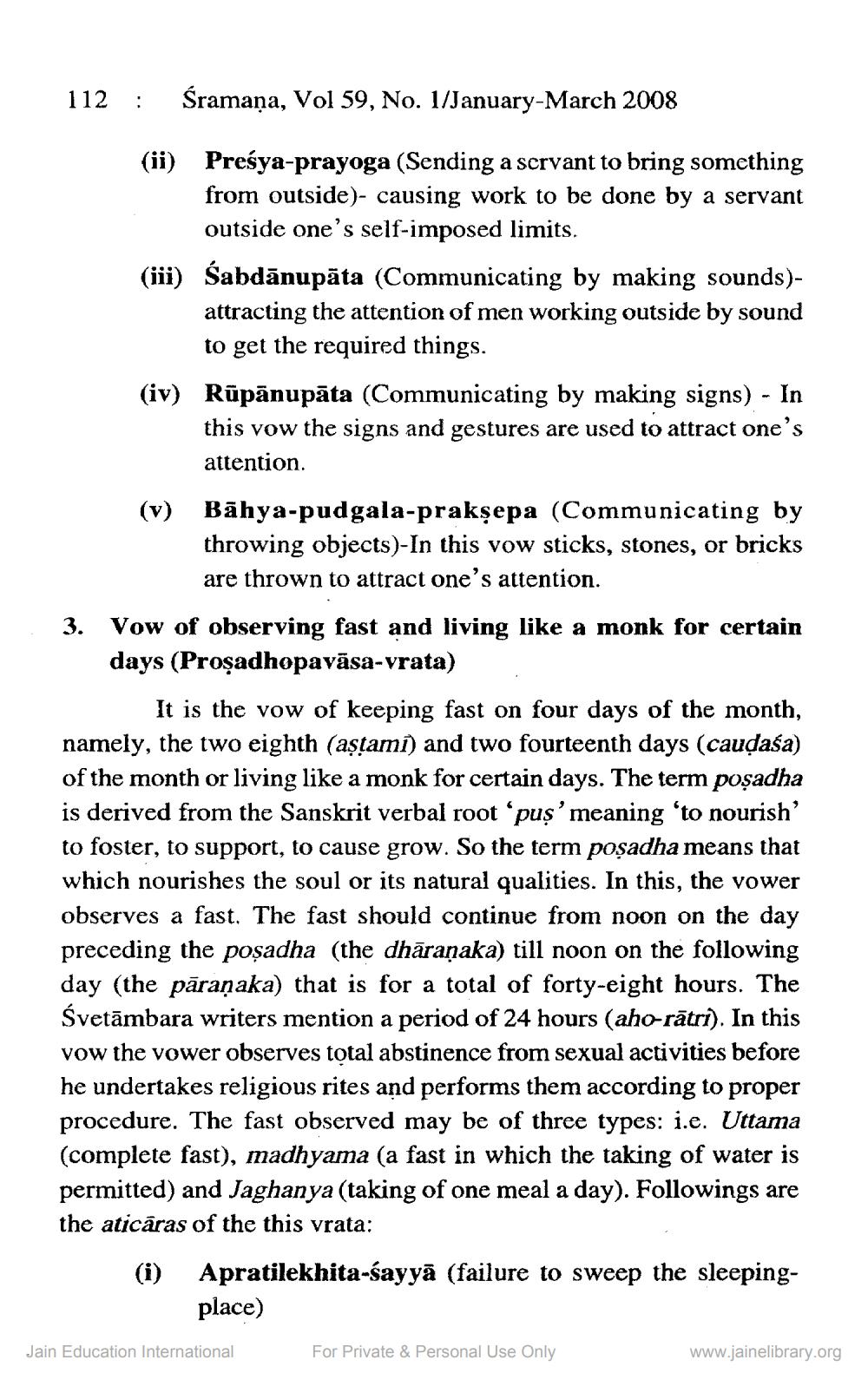________________
112:
Śramaņa, Vol 59, No. 1/January-March 2008
(ii) Preśya-prayoga (Sending a servant to bring something
from outside)- causing work to be done by a servant
outside one's self-imposed limits. (iii) Sabdānupāta (Communicating by making sounds)
attracting the attention of men working outside by sound
to get the required things. (iv) Rūpānupāta (Communicating by making signs) - In
this vow the signs and gestures are used to attract one's
attention. (v) Bāhya-pudgala-prakṣepa (Communicating by
throwing objects)- In this vow sticks, stones, or bricks
are thrown to attract one's attention. 3. Vow of observing fast and living like a monk for certain days (Proșadhopavāsa-vrata)
It is the vow of keeping fast on four days of the month, namely, the two eighth (aştami) and two fourteenth days (caudaśa) of the month or living like a monk for certain days. The term posadha is derived from the Sanskrit verbal root ‘puş' meaning 'to nourish' to foster, to support, to cause grow. So the term poşadha means that which nourishes the soul or its natural qualities. In this, the vower observes a fast. The fast should continue from noon on the day preceding the posadha (the dhāraṇaka) till noon on the following day (the pāraṇaka) that is for a total of forty-eight hours. The Śvetāmbara writers mention a period of 24 hours (aho-rātri). In this vow the vower observes total abstinence from sexual activities before he undertakes religious rites and performs them according to proper procedure. The fast observed may be of three types: i.e. Uttama (complete fast), madhyama (a fast in which the taking of water is permitted) and Jaghanya (taking of one meal a day). Followings are the aticāras of the this vrata:
(i) Apratilekhita-sayyā (failure to sweep the sleeping
place)
Jain Education International
For Private & Personal Use Only
www.jainelibrary.org




